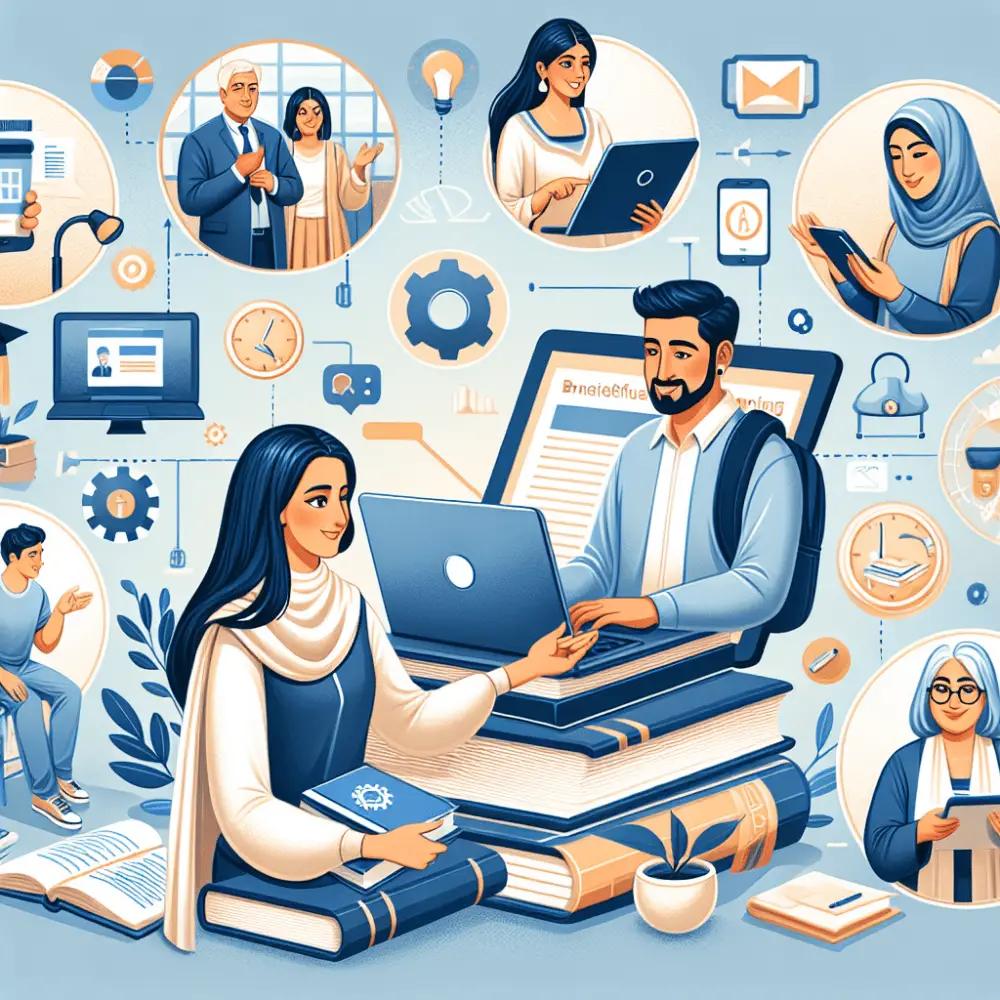
Distance learning offers an incredible opportunity for students across the globe. With advancements in technology, countless individuals can pursue their educational goals without the need to be physically present in a traditional classroom setting. However, success in distance learning often hinges on the availability and effectiveness of educational support. This article examines various types of support that can facilitate a fulfilling and successful distance learning experience for students.
The Importance of Support Systems
One can’t overstate the importance of a strong support system in distance learning. Unlike traditional settings, where students can directly interact with teachers and peers, distance learners often face isolation. This makes it crucial to offer multiple layers of support, which can include academic, emotional, and technical assistance.
Financial Support
Financial constraints can be a significant barrier for many distance learners. Scholarships and grants can play a pivotal role in easing the financial burden. For instance, students interested in European literature might find the “€5000 European Literature Excellence, France 2024” scholarship particularly beneficial. This scholarship provides substantial financial assistance, enabling students to focus more on their studies rather than stressing about tuition fees.
Similarly, another notable opportunity is the “Global Fund for Women (GFW) Adolescent Girls Advisory Council: Call for Applications 2019“. Tailored specifically for adolescent girls, this fund offers financial resources and can also include mentorship and guidance, boosting the overall educational experience.
Academic Support
Academic support is the backbone of distance learning. Online classes, resources, and interactive sessions are beneficial, but personalized academic support like tutoring can make a significant difference. Many institutions offer virtual tutoring sessions to help students understand complex topics. Online forums and interactive platforms also allow students to ask questions and participate in discussions, mirroring the interactive atmosphere of a traditional classroom.
Emotional and Psychological Support
Distance learning can be isolating, and many students struggle with motivation and time management. Emotional and psychological support is thus vital. Institutions often provide access to counselors who can help students navigate through their emotional challenges, be it stress, anxiety, or any other mental health concerns. Having a strong support system helps students remain engaged and motivated throughout their learning journey.
Technical Support
Another critical aspect of supporting distance learners is ensuring they have access to reliable technical support. This includes ensuring students have the necessary hardware, software, and internet connectivity to participate in online courses. Many institutions offer help desks or dedicated support teams to assist with technical issues, ensuring students can focus on their studies without being hampered by technology-related problems.
Community Building
Building a sense of community can significantly enhance the distance learning experience. Creating opportunities for students to interact with peers through group projects, discussion boards, or virtual study groups can foster a sense of belonging. This communal atmosphere can counteract the isolation often associated with distance learning and can lead to a more collaborative and supportive educational experience.
Flexible Learning Approaches
Flexibility is one of the significant advantages of distance learning. By offering various learning formats such as recorded lectures, live Zoom sessions, and interactive modules, institutions can cater to different learning styles. This ensures that all students, regardless of their personal circumstances or learning preferences, can access and absorb the material effectively.
Accessible Learning Resources
Ensuring that all students have access to essential learning resources is fundamental. Libraries now often provide online access to books, journals, and research papers, making it easier for distance learners to gather necessary information. Institutions can also offer free or discounted access to software and tools required for coursework, helping to level the playing field for all students.
Career Support
Career guidance and support are essential aspects of a comprehensive distance learning experience. Institutions can offer career counseling, resume-building workshops, and virtual job fairs to help distance learners transition smoothly into the workforce. These resources ensure that students not only gain academic knowledge but also practical skills and connections they need to succeed in their careers.
Parental and Family Support
For younger students or those caring for family members, parental and family support systems can be incredibly helpful. Institutions can offer resources and seminars to inform parents about the challenges and needs of distance learners. This fosters a supportive home environment that can significantly impact a student’s overall success and well-being.
Utilizing Feedback Mechanisms
Another critical aspect of support in distance learning is the continuous improvement of support systems based on student feedback. Regular surveys and feedback forms can help institutions understand the needs and concerns of their students. Listening and adapting to this feedback ensures that the support provided remains relevant and effective.
Building Partnerships
Partnerships with other educational institutions, non-profits, and corporations can also enhance the support available to distance learners. Collaborative efforts can offer additional resources, networking opportunities, and even job placements, broadening the horizons for distance learners.
The Role of Mentorship
Mentorship programs can profoundly impact distance learners by providing guidance, motivation, and professional insights. Pairing students with experienced mentors can help them navigate academic challenges, explore career opportunities, and build valuable professional networks.
Encouraging Lifelong Learning
Educational support should also emphasize the concept of lifelong learning. Encouraging students to pursue continuous education, professional development courses, and certifications can help them stay competitive in an ever-changing job market. Institutions can offer discounts or free access to these additional resources as a part of their support system.
Tailoring Support to Diverse Needs
Every distance learner is unique, and their needs can vary greatly based on their personal circumstances, background, and career goals. Providing a range of customizable support options ensures that every student receives the assistance they need, whether they are a single parent, working professional, or someone with disabilities.
The Future of Distance Learning Support
As technology continues to evolve, so too will the mechanisms for supporting distance learners. Innovations like Artificial Intelligence (AI) and Virtual Reality (VR) hold potential to revolutionize the way educational support is delivered. Personalized learning paths generated by AI can provide students with tailored academic assistance, while VR can create immersive learning environments that mimic traditional classrooms.
Conclusion
Unlocking educational support for distance learning students involves a multifaceted approach that addresses academic, emotional, technical, and financial needs. By leveraging scholarships like the “€5000 European Literature Excellence, France 2024” and “Global Fund for Women (GFW) Adolescent Girls Advisory Council: Call for Applications 2019”, institutions can alleviate financial burdens. Additionally, providing comprehensive academic support, fostering community, and offering career guidance and technical assistance ensures that distance learning students can achieve their educational goals and beyond. Through ongoing adaptation and innovation, the future of distance learning promises even more effective and robust support systems.

















